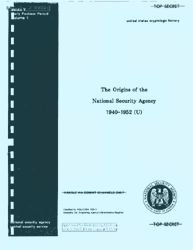And when the Easter festival drew nigh, the king bade the barons of the realm assemble in that city that he might celebrate so high a holiday with honour by assuming the crown thereon. All obeyed accordingly, and repairing thither from several cities, assembled together on the eve of the festival. The King, accordingly, celebrated the ceremony as he proposed, and made merry along with his barons, all of whom did make great cheer for that the King had received them in a joyful wise. For all the nobles that were there had come with their wives and daughters as was meet on so glad a festival. Among the rest, Gorlois, Duke of Cornwall, was there, with his wife Igerne, that in beauty did surpass all the other dames of the whole of Britain. And when the King espied her amidst the others, he did suddenly wax so fain of her love that, paying no heed unto none of the others, he turned all his attention only upon her. Only unto her did he send dainty tid-bits from his own dish; only unto her did he send the golden cups with messages through his familiars. Many a time did he smile upon her and spake merrily unto her withal. But when her
Husband did perceive all this, straightaway he waxed wroth and retired from the court without leave taken. . . .
. . . [T]he King gathered a mighty army together and went his way into the province of Cornwall and set fire to the cities and castles therein.
But Gorlois, not daring to meet him in the field for that he had not so many armed men, chose rather to garrison his own strong places until such time as he obtained the succour he had besought from Ireland. And, for that he was more troubled upon his wife’s account than upon his own, he placed her in the Castle of Tintagel, on the seacoast, as holding it to be the safer refuge. Howbeit, he himself betook him into the Castle of Dimiloc, being afeared that in case disaster should befall him both might be caught in one trap. And when message of this was brought to the King, he laid siege to Gorlois’s castle.
The King besieged Tintagel castle. He wanted Igerne for himself and consulted his friend Ulfin who recommended that he ask Merlin to help him. Tintagel is described,
[T]here is no force that may prevail whereby to come unto her in the Castle of Tintagel? For it is situate on the sea, and is on every side encompassed thereby, nor none other entrance is there save such as a narrow rock doth furnish, the which three armed knights could hold against thee, albeit thou wert standing there with the whole realm of Britain beside thee.
But, if Merlin the prophet would take the matter in hand, I do verily believe that by his counsel thou mightest compass they heart’s desire.
Merlin uses his magical powers to disguise the king as Igerne’s husband Gorlois
At last, committing the siege into charge of his familiars, he did entrust himself into the arts and mendicants of Merlin, and was transformed into the semblance of Gorlois. Ulfin was changed into Jordan, and Merlin into Brecil in such sort as that none could have told the one from the other. They then went their way toward Tintagel, and at dusk hour arrived at the castle. The porter, seeing that the Duke had arrived, swiftly unmade the doors, and the three were admitted. For what other than Gorlois could it be, seeing that all things seemed as if Gorlois himself were there? So the King lay that night with Igerne, for as he had beguiled
Her by the false likeness he had taken upon him, so he beguiled her also by the feigned discourses wherewith he did full artfully entertain her. For he had told her that he had issued forth of the besieged city for naught save to see to the safety of her dear self and the castle wherein she lay, in such sort that she believed him every word, and had no thought to deny him in aught he might desire. And upon that same night was the most renowned Arthur conceived, that was not only famous in later years, but was well worthy of all the fame he did achieve by his surpassing prowess.
Source: Geoffrey of Monmouth. History of the Kings of Britain by Geoffrey of Monmouth. Translated by Sebastian Evans. London: J. M. Dent; New York: E. P. Dutton, 1911. Ch. XIX, pp. 147-49.




 World History
World History









